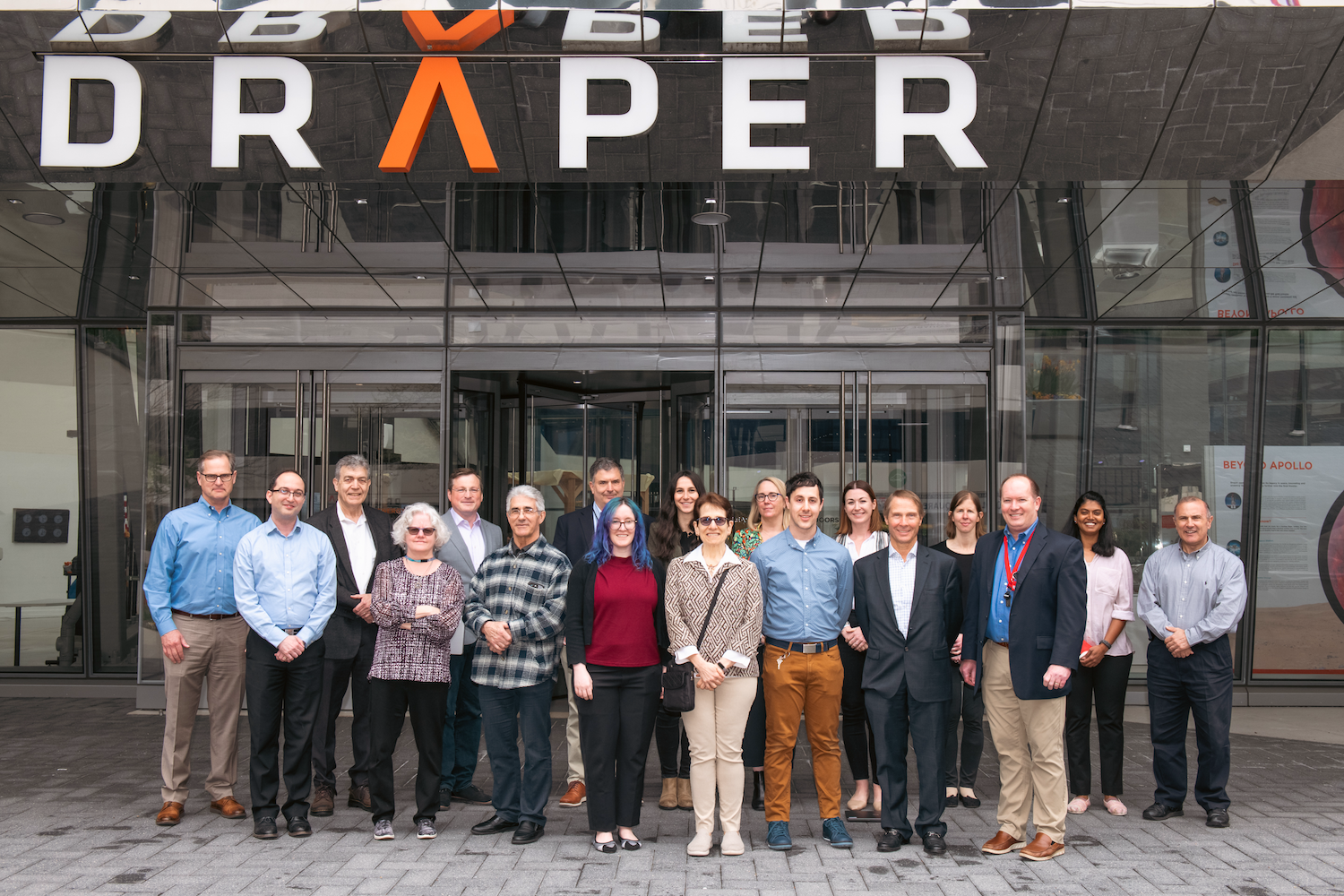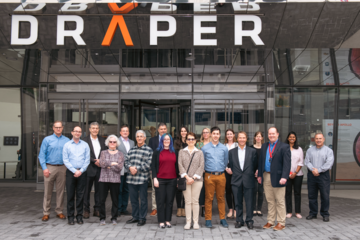Draper Hosts Leaders from BARDA
CAMBRIDGE, Mass.—Draper recently hosted leaders from the Biomedical Advanced Research and Development Authority (BARDA), part of the Administration for Strategic Preparedness and Response (ASPR), within the U.S. Department of Health and Human Services (HHS), to review the company’s progress on the development of solutions for national health security.
In September 2023, Draper signed an Other Transaction Authority (OTA) agreement #75A50123C00042 with BARDA, which is valued at up to $90.5M over a five-year period.
The mission of the Biomedical Advanced Research and Development Authority (BARDA) is to develop medical countermeasures that address the public health and medical consequences of chemical, biological, radiological and nuclear (CBRN) accidents, incidents and attacks, pandemic influenza and emerging infectious diseases. (Source: Medical Countermeasures, Biomedical Advanced Research and Development Authority (BARDA).
“We’re working on capabilities to protect the nation against high-priority threats and accelerate our response to future threats,” said Roger Odegard, the Draper OTA Program Manager.
The overall objective of the OTA is to advance the scientific understanding of illness and injury resulting from exposure to a broad range of CBRN threats, such as chemical agents, infectious pathogens, toxins, radiological exposure and nuclear events, and evaluate potential medical countermeasure treatments. Draper’s goal is to produce end-to-end, high-throughput, human-relevant, microphysiological system (MPS)-based platforms—a technology where human organ function is modeled at the microscale in laboratory devices—combined with an array of cross-cutting analytical and laboratory capabilities.
Recently, the BARDA team visited Draper’s Cambridge campus to review the company’s progress to date on the two initial projects funded under the OTA agreement. During the visit, BARDA toured Draper’s state-of-the-art biotechnology lab spaces and was able to meet and interact with Draper’s lead scientists and engineers.
The goals of one project are to study the natural history of gastrointestinal acute radiation syndrome (GI-ARS), to identify biomarkers and drug targets from multi-omics analyses and to assess potential drug candidates. The second project is focused on infectious diseases, where the aim is to evaluate SARS-CoV-2 infection in diverse donor tissues to better understand the effects of demographics, such as age and sex, and co-morbidities, such as asthma and chronic obstructive pulmonary disease, or COPD.
This project has been funded in whole or in part with federal funds from the Department of Health and Human Services (HHS); Administration for Strategic Preparedness and Response (ASPR); Biomedical Advanced Research and Development Authority (BARDA), under OTA number: 75A50123C00042.
Released May 30, 2024

